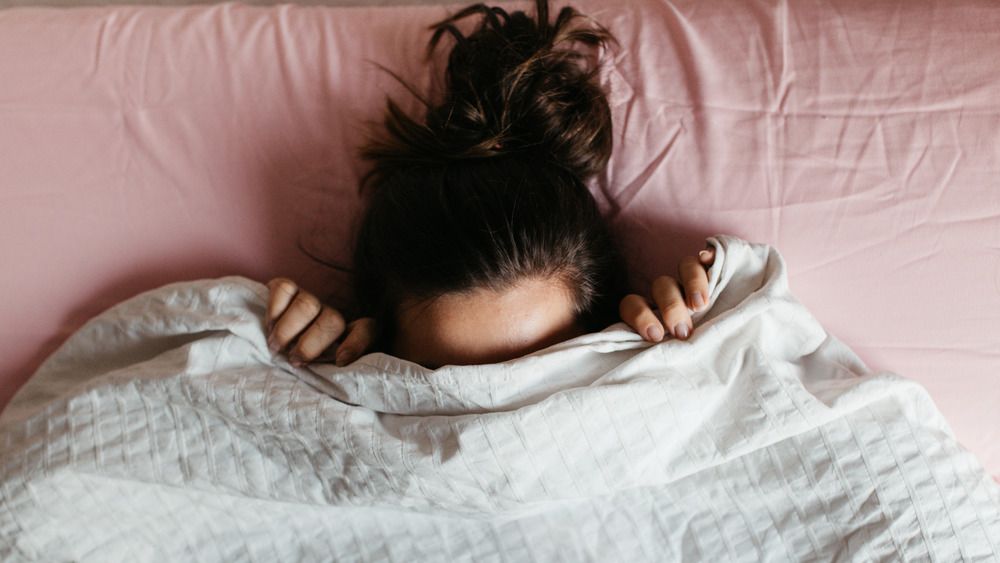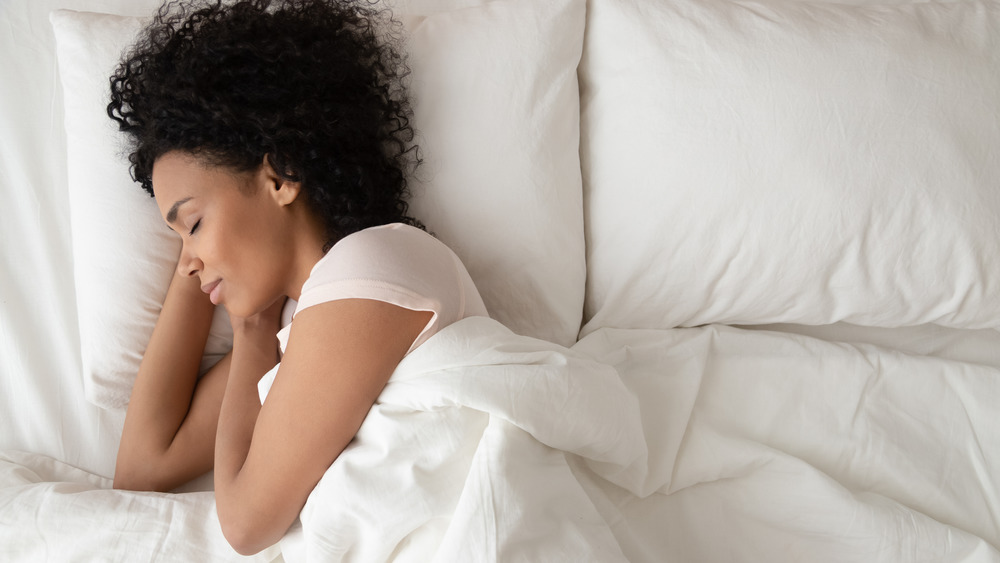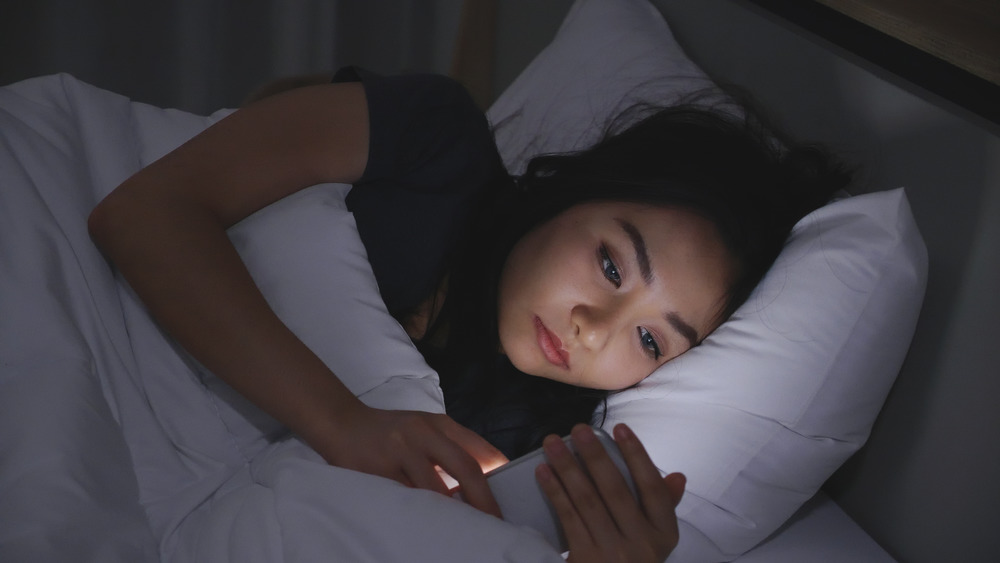Here's Why You're Not Having Any Dreams
Waking up and recalling a fantastical dream can be one of the most fun things to do in the morning. According to Healthline, there's no conclusive reason as to why we dream, but you're most likely to drop off into a fantastical land during REM sleep, or the rapid eye movement stage. However, sometimes you don't dream at all, and it could say everything about the quality of sleep you're getting. So here's why you're not having dreams. There's a distinct difference between not remembering your dreams and not having any at all. Clinical psychologist and associate professor, Kelly Baron, told Allure that you're much more likely not to dream if you suffer from a sleep disorder.
According to the Sleep Foundation, adults need at least eight hours of sleep per night. However, the Centers for Disease Control and Prevention found that 35.2% of all adults in the U.S. report sleeping on average for less than seven hours per night. This won't just leave you feeling sleepy in the morning. In Psychology Today, Patrick McNamara Ph.D. suggested that it could really impact how frequently you dream. Big Think also suggested that problems with your quality of sleep and dream problems go hand in hand.
How your quality of sleep affects your dreams
According to research published by the National Institute of Neurological Disorders and Stroke, on average, people spend about two hours per night dreaming. And Healthy Sleep said REM sleep makes up about twenty to twenty-five percent of your total sleep, and this is the time most conducive to dreaming.
Medical News Today reports that during REM sleep you experience rapid eye movement, your brain activity is similar to that seen while awake, there's increased oxygen consumption by the brain, and your face and limbs may twitch. This stage of sleep is most commonly associated with vivid dreams, so if you don't experience enough REM sleep then you won't dream. According to the Cleveland Clinic, you drop into REM sleep around one and a half hours after you go to sleep. If you're often interrupted while you sleep, or struggle falling asleep, then you're more likely to miss out on REM sleep and dreaming.
According to the National Center for Biotechnology Information, between ten and thirty percent of adults struggle with chronic insomnia, and women are forty percent more likely to experience the condition. This doesn't just affect how many hours of shut-eye you get, but also the quality of your sleep. Healthline explains that depression, anxiety, and cardiovascular disease can all increase your risk of insomnia.
You may think you have an issue dreaming, but it could be indicative of an overall problem sleeping. Baron explained to Allure, "I never saw a patient who came in for only lack of dreaming. They usually have insomnia and feel like their sleep quality is poor overall. In their case, a lack of dreaming is more of a consequence of overall poor sleep."
Is dreaming good for you?
Aside from being an indicator that you had a good night's sleep, a study conducted at the Proceedings of the National Academy of Sciences found that lack of REM sleep and dreaming could affect your creativity and ability to solve problems.
Sleep and dream specialist, Rubin Naiman, Ph.D., told The Healthy, "Poor dreaming, or damaged dreaming, is strongly linked to emotional disturbance and to anxiety, depression, and other forms of mental illness. Dreaming also processes and consolidates memory, and both mild cognitive disturbances and serious neurological disorders like Alzheimer's disease are associated with damaged dreaming. If we don't dream well, we won't remember well."
Naiman also linked looking at artificial lights and screens before bed to a poorer quality of sleep and fewer dreams. MSD Manual recommends looking at your lifestyle habits and mental health when accessing your quality of sleep. According to their website, forty percent of people with insomnia are also believed to be affected by a mental health condition.
Healthline outlines that just because you don't remember your dreams doesn't mean you didn't dream. However, there is a connection between the quality of sleep and dreaming, so if you notice you're waking up fatigued and have stopped dreaming, it might be a good idea to speak to a specialist.


